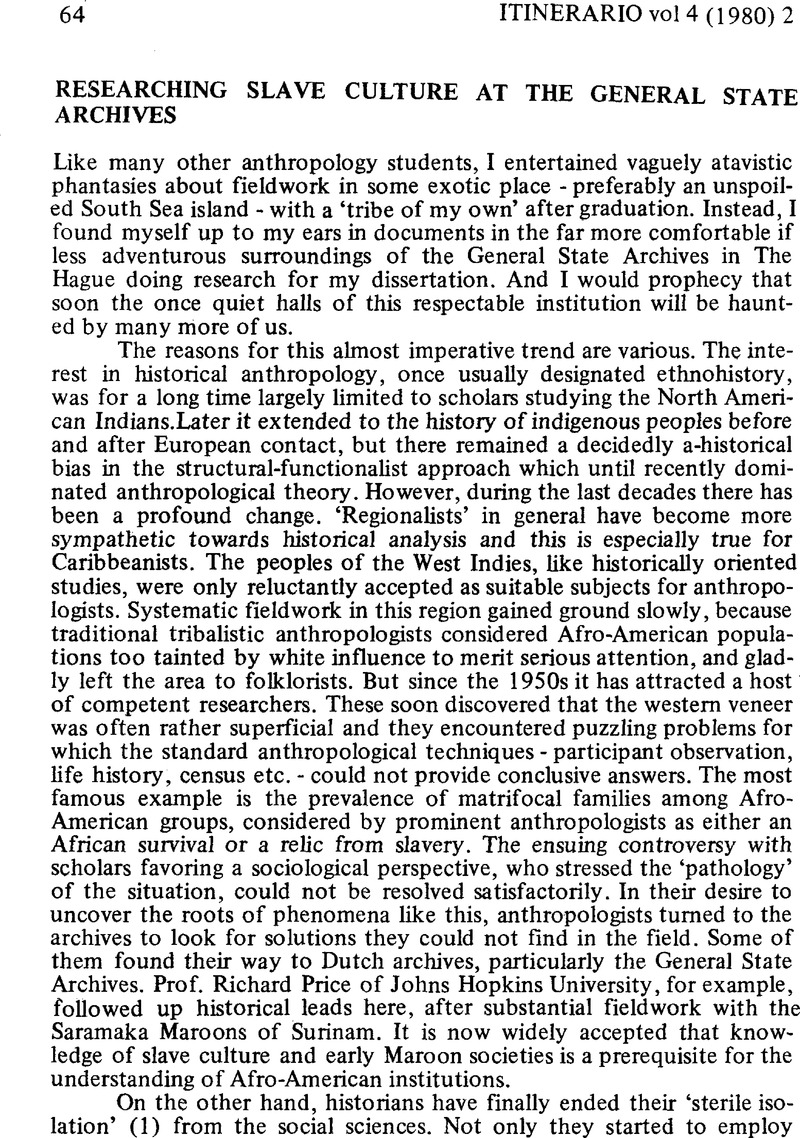No CrossRef data available.
Published online by Cambridge University Press: 22 April 2010

1. Of course, I would not dare to make such a rash declaration on my own authority, I merely quoted Foner, Laura and Genovese, Eugene D., Slavery in the New World, 1969: viiiGoogle Scholar.
2. Cohn, Bernard, ‘History and Anthropology: The State of Play’. Comparative Studies in Society and History, vol. 22 no. 2, 1980: 214.CrossRefGoogle Scholar
3. Blassingame, John, Slave Testimony, 1977: xi.Google Scholar
4. , Tannenbaum, in Slave and Citizen (1946)Google Scholar contended that the Spanish and Portuguese slave systems were the mildest and the Dutch and the English the most cruel, with the French system in between.
5. Elkins compared the slave plantation with another ‘total institution’, the concentration camp and stressed the infantilizing aspects of both.
6. Hughes, H. Stuart. ‘The Historian and the Social Scientist” American Historical Review, vol. 66. 1960; 34.CrossRefGoogle Scholar
7. Cohn, 1980: 217:
8. Michael Craton et. al. Slavery, Abolition and Emancipation. 1976: 65.Google Scholar
9. Like Genovese, Eugene did for the American slaves in Roll, Jordan, Roll, 1976: xvi (Vintage Books).Google Scholar
10. Mintz, Sidney and Price, Richard, An Anthropological Approach to the Afro-American Past. 1976: 56.Google Scholar
11. Opstall, Margaretha van, ‘Archival Sources in the Netherlands’. In Rubin, Vera and Thuden, Arthur (eds.), Comparative Perspectives on Slavery in New World Plantation Societies. 1978: 506/7.Google Scholar